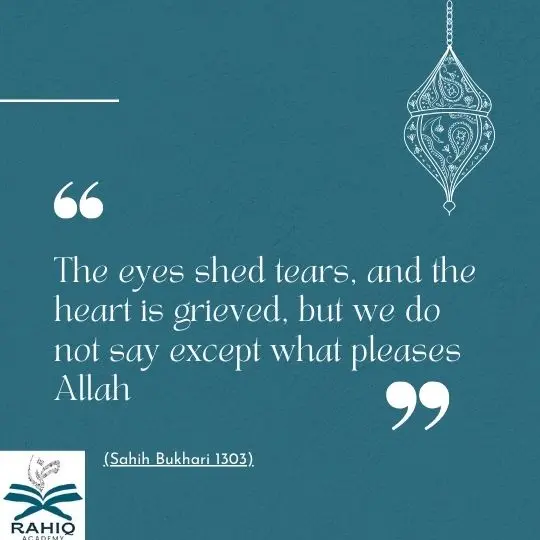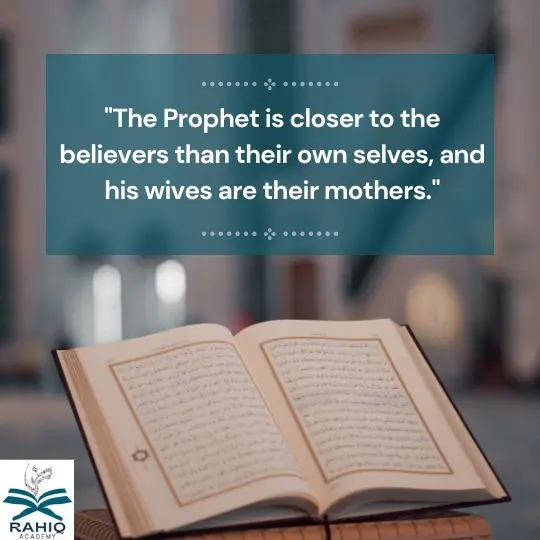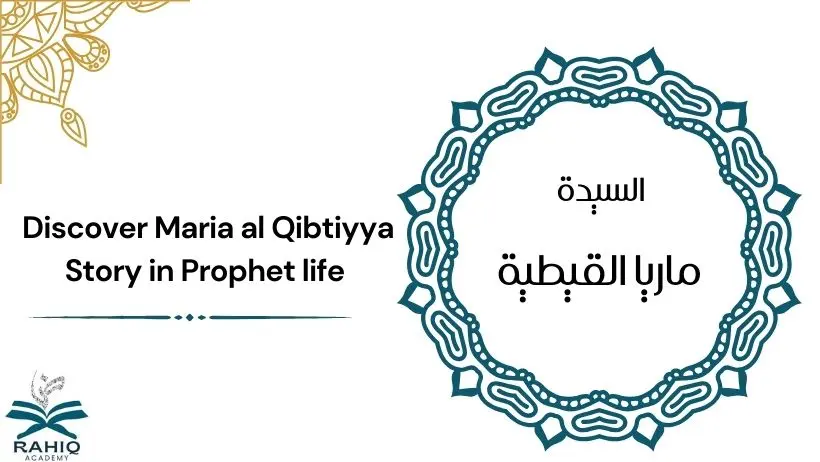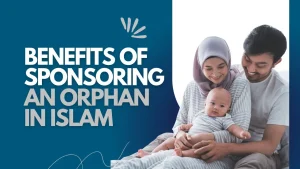Maria al-Qibtiyya, a revered figure in Islamic history, was an important companion of Prophet Muhammad (peace be upon him) and the mother of his son, Ibrahim.
Originally from Egypt, she was sent to the Prophet by al-Muqawqis, the ruler of Alexandria, as a diplomatic gesture after the Treaty of Hudaybiyyah. Through her journey from a Coptic Christian to a devout Muslim, Maria exemplifies resilience, faith, and dedication to the Prophet’s household.
we will explore together Maria al Qibtiyya Story in Prophet life
Maria al Qibtiyya Meaning
The name Maria al Qibtiyya meaning reflects her Coptic Egyptian heritage, with “al-Qibtiyya” meaning “the Copt” or “the Egyptian.” As one of the Prophet’s close companions, her presence in his life highlights Islam’s inclusivity, welcoming people from various cultural and religious backgrounds. This title signifies both her identity and the diverse makeup of the early Muslim community.
Maria al-Qibtiyya Religion
Maria was a Coptic Christian when she arrived in Medina. Shortly after joining the Prophet’s household, she embraced Islam, embracing the teachings of the Qur’an and the Prophetic tradition. Her conversion demonstrates her commitment to her faith, which led her to fully integrate into the early Muslim community.
This transformation exemplifies the welcoming and respectful environment of the Prophet’s household, where people from different origins were accepted and honored.
Maria al Qibtiyya Son

In 8 AH, Maria and the Prophet welcomed their son, Ibrahim. This event was a moment of immense joy for the Prophet
Maria al Qibtiyya Son, named after the revered Prophet Ibrahim (Abraham), emphasizing a connection to the broader tradition of faith.
The Prophet frequently visited Maria and Ibrahim, cherishing his son dearly. Sadly, Ibrahim fell seriously ill and passed away as a young child. The Prophet expressed his grief with these words:
إِنَّ الْعَيْنَ تَدْمَعُ، وَالْقَلْبَ يَحْزَنُ، وَلاَ نَقُولُ إِلاَّ مَا يَرْضَى رَبُّنَا، وَإِنَّا بِفِرَاقِكَ يَا إِبْرَاهِيمُ لَمَحْزُونُونَ””
“The eyes shed tears, and the heart is grieved, but we do not say except what pleases Allah”
(Sahih Bukhari 1303)
During Ibrahim’s funeral, an eclipse occurred. When some interpreted it as a sign connected to Ibrahim’s death, the Prophet corrected this misconception, teaching that such events are natural signs of Allah’s majesty and independent of human affairs. This moment underlined the Islamic teaching that life and death rest solely in Allah’s hands.
Was Maria al Qibtiyya a Wife ?

Maria al-Qibtiyya is regarded with great respect as the mother of the Prophet’s son, yet she is not considered one of his formal wives, known as the Mothers of the Believers. Her status as a concubine reflects a unique role in the Prophet’s life. The Qur’an specifies that the title of Mother of the Believers is reserved exclusively for the Prophet’s wives:
“The Prophet is closer to the believers than their own selves, and his wives are their mothers.”
(Surah Al-Ahzab, 33:6)
Despite this, Maria was deeply valued and held in high regard. Known as Umm Walad, her title in Islamic tradition indicates her esteemed position as the mother of the Prophet’s son. Through this role, she contributed to the diversity of the early Muslim community and served as an example of dedication and faith.
Conclusion
Maria al-Qibtiyya Story reflects the depth of the Prophet Muhammad’s household, marked by devotion, inclusivity, and spiritual growth. Her life reminds us of the strength that comes from embracing one’s faith and committing oneself to the service of Allah.
For those interested in learning more about Maria al-Qibtiyya and others in the Prophet’s life, RAHIQ Academy offers an enlightening Seerah course that explores the teachings of the Prophet Muhammad and the lives of his companions. This course provides insights into the values and practices that continue to inspire Muslims worldwide.




